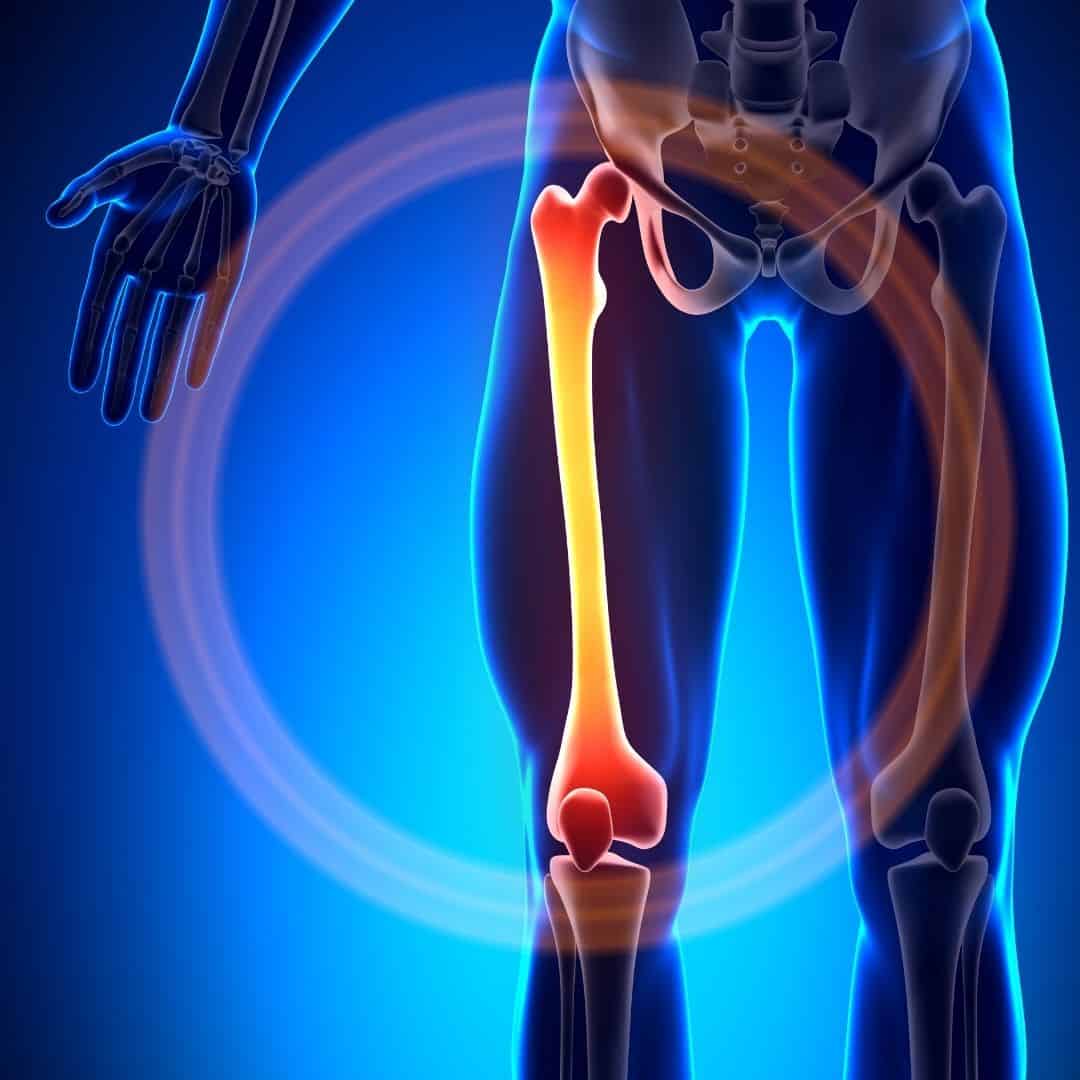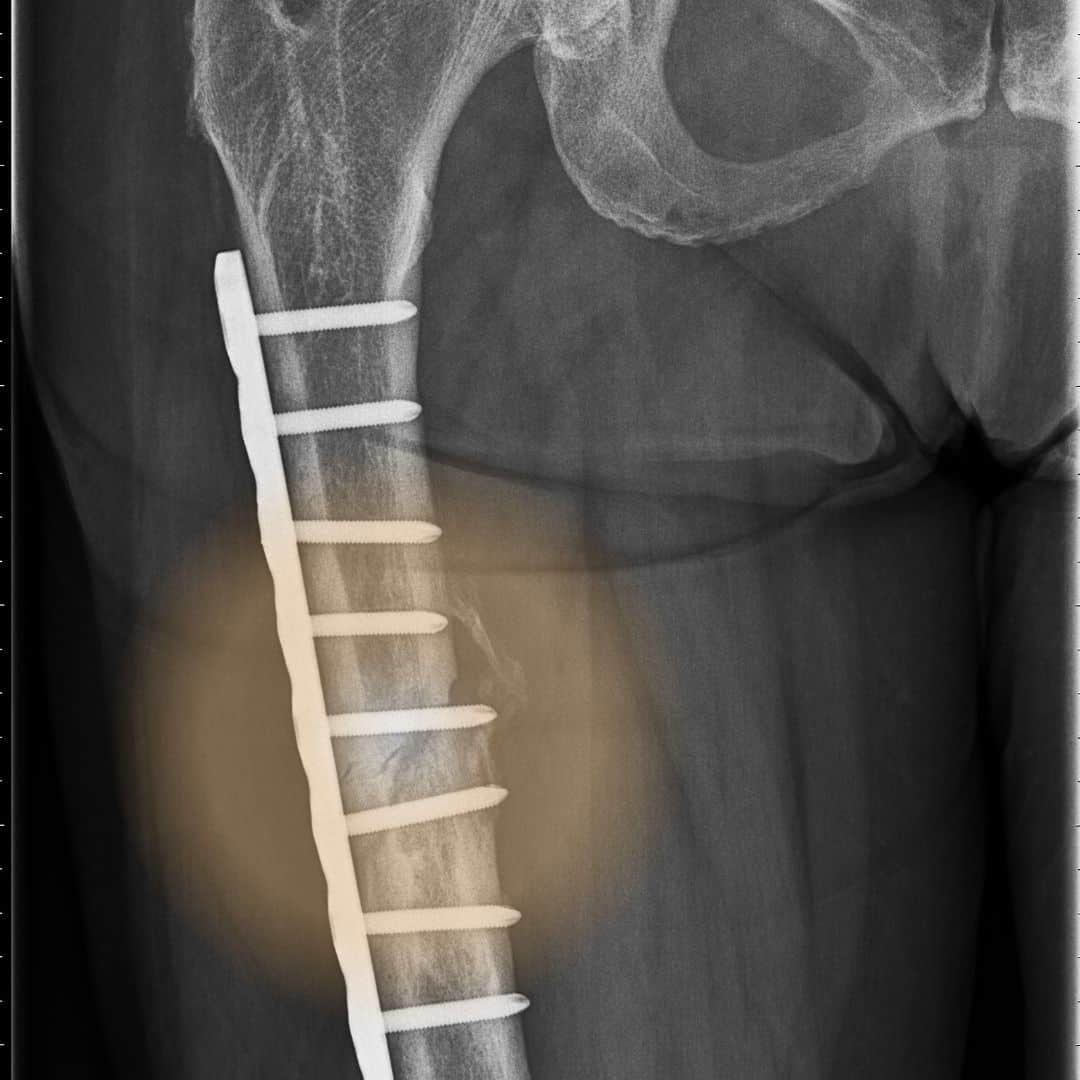
Are you suffering from symptoms of a possible femoral fracture (broken thighbone)?
Our Specialists at MD West ONE can properly diagnose and treat femoral fractures through surgical and non-surgical treatments. If you have the following symptoms, you may want to make an appointment with one of our Board Certified Specialists.
- Hard time moving your leg
- Abnormal shape of the thigh
- Unable to walk or stand on the affected side
- The most severe and urgent sign would be a bone pushing our through your skin
What is a femoral fracture (broken thighbone)?
Your thighbone (femur) is the longest, heaviest, largest, and strongest bone in your body– this bone starts at your hips and ends at your knees. Since your femur is the strongest bone in your body it takes a lot of pressure and force to break.
What can cause your femur to break?
There are many different types of injuries that can cause your femur to break
- Traumatic motorcycle or car accident
- Hit by a car while walking, running, etc
- Gunshot wounds
- Falling from significant falls or any fall for an older person who has weaker bones

How is a femoral fracture diagnosed?
Doctors diagnose femoral fracture by taking a medical history, physical exam, and X-rays of the affected area. Further imaging may be required, like a computed tomography (CT) scan if your doctor needs more information after your x-rays have been completed.
How is the fracture treated?
Non-surgical: The majority of femoral fractures need surgery in order to heal properly– your surgeon will discuss what is best for you.
Surgery: There are a couple of different surgeries your surgeon may discuss with you:
- External fixation
- Metal plate and screws
